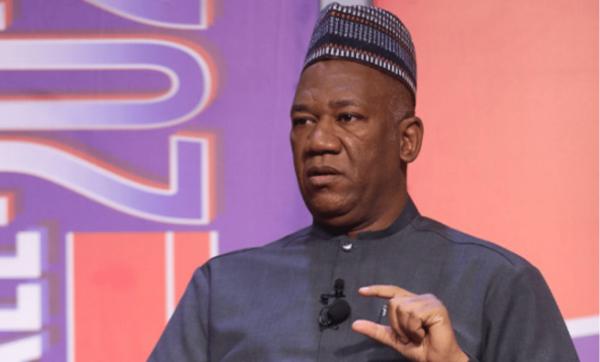
The Federal Government will today meet leaders of striking oil workers and other stakeholders in the petroleum sector in a desperate effort to end the industrial action before it worsens the fuel supply chain and other socio-economic situations.
Already, the workers, on the umbrella of the Nigeria Union of Petroleum and Natural Gas Workers, NUPENG and its Petroleum and Natural Gas Senior Staff Association of Nigeria, PENGASSAN’s counterpart, operating as NUPENGASSAN, have not only stopped loading of products, major installations in both upstream and downstream have also, been shut.
Vanguard gathered that the Federal Government through the Federal Ministries of Labour and Productivity as well as Petroleum Resources, slated today’s meeting for 11 am in Abuja.
However situations reports across the country yesterday indicated high level of compliance by workers on the first day of the strike.
In Lagos, most depots were shut. At Ejigbo Depot, some tankers that loaded earlier in the day were restricted, but later allowed to move out of the depot because of the inherent danger.
At Apapa, installations owned by Mobil and Oando were said to have recorded total compliance. Though there was skeletal work by NUPENG members at Total depot, but it was later stopped in the course of the day.
While in Warri, there was no loading, while NUPENG members were seen wearing red as a sign of protest, in Port Harcourt, a strike monitoring committee member told Vanguard on condition of anonymity, that there was total compliance in all oil and gas locations, as the loading bays were shut.
Similarly, in Kaduna and Abuja, there was also total compliance on the part of PENGASSAN members.
In Kaduna, the gate of the Kaduna Refinery was shut and no entrance was allowed into the premises.
A union leader claimed that in the morning, the NNPC towers were opened for business and workers were at their desks but were later called to stop work at about 11.45 a.m.
The workers are protesting among others, the inability of the government to carry out Turn around Maintenance, TAM, on the refineries and reduce pump prices of petroleum products in line with the slump in global prices of crude oil.
Other grievances are delay in the passage of the Petroleum Industry Bill, PIB, global crude oil prices slump, non -implementation of the Nigeria Oil and Gas Industry Content Development, NOGICD, Act to reflect Nigerian’s in management positions and expatriate quota law, appalling state of access roads to refineries and oil depots’ facilities, insecurity in the country that has led to the death of members, appointments in government agencies in disregards to succession planning, compulsory deduction from workers’ salaries for the National Housing Fund, NHF, casualisation and contract staffing and unfair labour practice by companies and government agencies.
They also include termination of appointment of the Port Harcourt Zonal Secretary of the Association by Total Exploration and Production, Total E&P, Nigeria Limited, retardation of staff promotion in the Petroleum Technology Development Fund, PTDF, non-standardisation of nomenclature and collective bargaining agreement of the Nigerian Nuclear Regulatory Agency, NNRA, in line with what is obtained in other agencies in the oil and gas industry, refusal of the management of Addax/Petro stuff Nigeria Limited and Chevron/Sudelletra to recall sacked staff.
Meanwhile, Trade Union Congress of Nigeria, TUC, in Lagos advised the Federal Government to address the grievances of the oil workers immediately and save Nigerians from another round of fuel scarcity among other implications of the strike.






















